Key Takeaways
- GEO (Generative Engine Optimization) is becoming critical as AI search assistants reshape how brands are discovered.
- Tools like Otterly AI and Profound track and analyze brand mentions across AI, while Scrunch AI and Athena HQ ensure AI-ready content strategies.
- Established SEO players like Semrush AI Toolkit and Ahrefs Brand Radar now offer GEO add-ons for teams already running SEO campaigns.
- Pricing ranges from free entry-level tools to enterprise-grade platforms, making GEO accessible for both startups and global brands.
- The right GEO stack depends on whether your brand needs monitoring, optimization, or technical enablement—and which stage of growth you’re in.
- Tools like Slate systematically update existing content at scale to maintain visibility across ChatGPT, Perplexity, and other AI search engines.
Gone are the good ol’ days when SEO meant chasing Google's top three spots alone.
In the past two years, your audience has rapidly migrated towards AI-powered search engines like ChatGPT, Claude, and Perplexity. They're asking questions and getting instant, conversational answers instead of scrolling through blue links.
B2B SaaS brands are already pivoting their strategies to get quoted and featured in AI engine responses, because that's where their customers are searching more and more. This evolution has transformed SEO from a single-channel game into a multi-engine optimization challenge.
SEO professionals are now juggling traditional search engine optimization alongside Generative Engine Optimization (GEO). It's more complex, but the payoff is that your brand is featured as the authoritative source in AI engines.
Thankfully, you don't have to tackle GEO manually.

The right toolkit can automate content, track mentions, and streamline workflows—both saving you time and reducing costly errors.
In this article, we dive into the best GEO tools out there to make your GEO better and easier. We dive into their features, pricing, and analyse how they stack up against each other.
Let’s get started.
Overview of the Top 13 GEO Tools in 2026
The 13 GEO Tools You Need in 2026
Here's your lineup of the best GEO tools on the market right now. A great way to approach is to test the waters with one or two tools and expand based on your strategy.
Slate
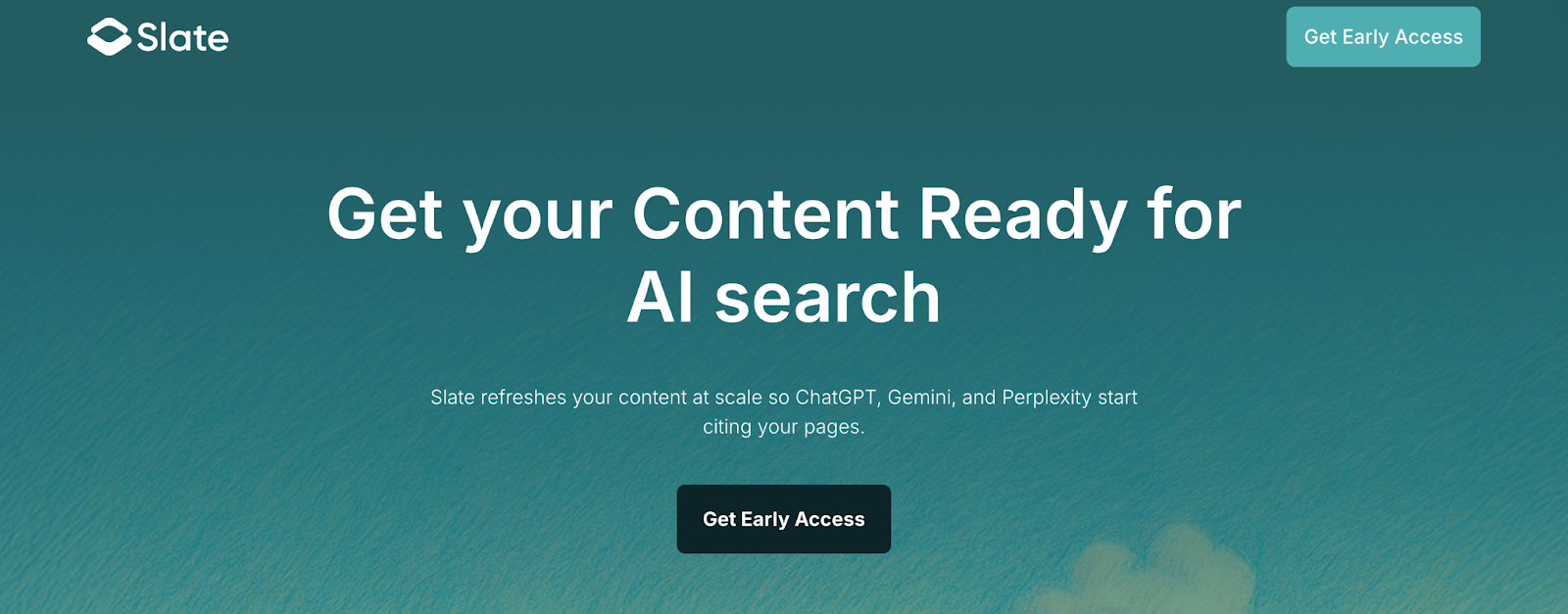
Overview
Slate solves the critical problem of content decay for GEO by automating large-scale content refreshes.
It scans entire domains for freshness issues, prioritizes updates by business impact, and processes hundreds of pages simultaneously while maintaining brand voice. The platform combines AEO share of voice visibility tracking, automated content refresh workflows, and performance measurement in one integrated system.
Slate ensures your pages stay current without manual intervention. Key capabilities include domain auditing for freshness and topical authority, structured data markup automation, internal linking pattern updates, and direct CMS publication to WordPress, Webflow, and other platforms.
Pricing
Custom pricing based on domain size and refresh requirements. Setup is typically completed within 24 hours with full support included.
Pros and Cons
Pros: Scales content refresh across hundreds of pages simultaneously, maintains topical authority through cluster-wide updates, automates technical optimization (schema, meta descriptions, headers), integrates directly with major CMS platforms, prioritizes updates by business impact rather than just traffic, and provides an end-to-end solution from auditing to publication.
Cons: Requires an initial setup and integration time of 24 hours
Writesonic

Overview
Writesonic is a full-scale Generative Engine Optimization (GEO) and SEO platform built to help brands strengthen their visibility in AI search results. It tracks and analyzes how your brand appears across ChatGPT, Google AI Overviews, Perplexity, Gemini, and Claude—then turns those insights into action with guided optimization workflows. Unlike monitoring-only tools, Writesonic helps you identify citation gaps, content weaknesses, and technical issues, then fix them directly within the platform.
Pricing
A free trial is available. The Lite plan starts at $39 a month, with advanced tiers going up to $400. They also have a custom pricing option.
Pros and Cons
Pros: Unified GEO + SEO capabilities, cross-platform AI tracking, actionable in-platform optimization, and agency-friendly dashboards.
Cons: May be advanced for smaller teams, setup and integration require initial effort, and some features are limited to higher plans.
Otterly AI
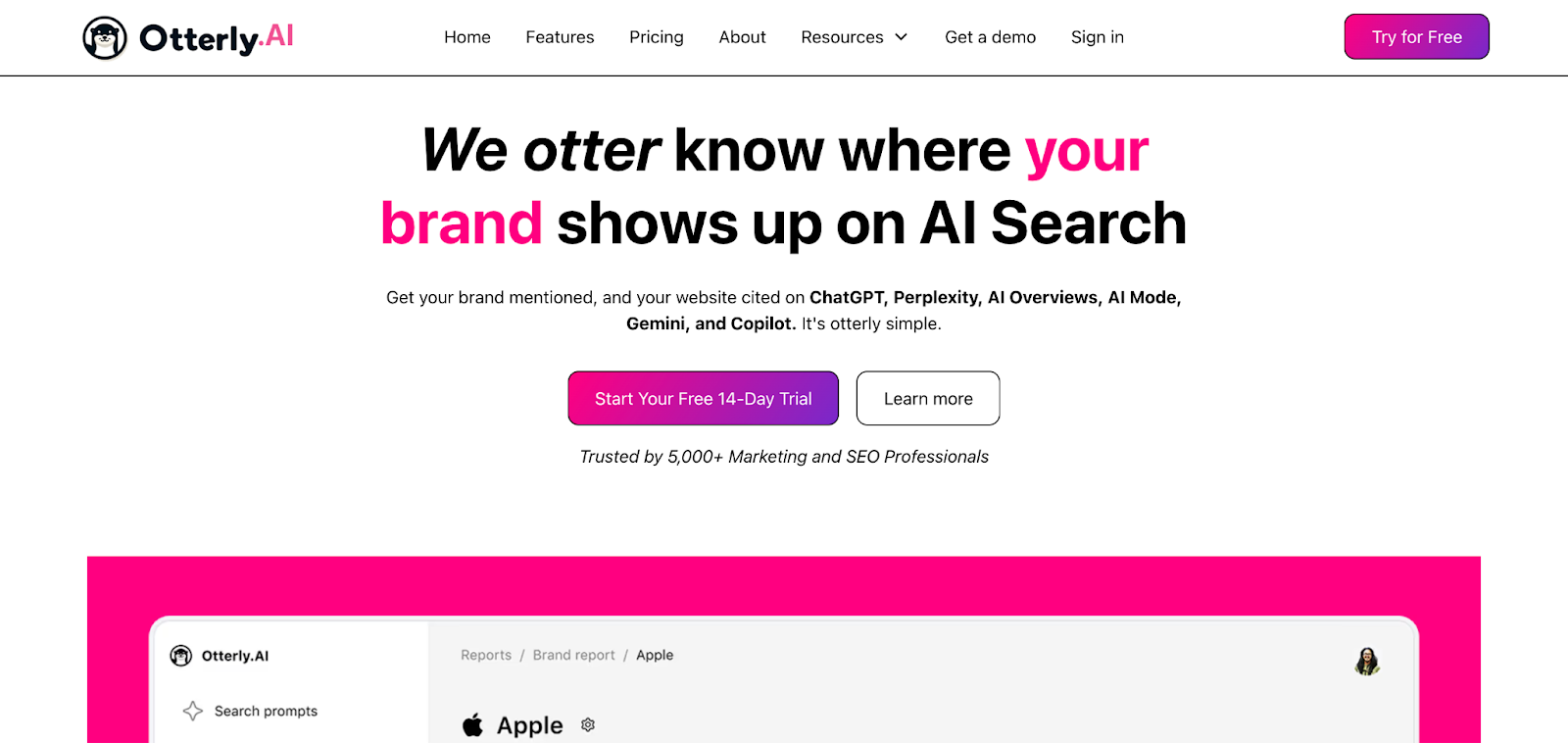
Overview
Otterly is an AI visibility watchdog. It continuously scans ChatGPT, Perplexity, and Google's AI Overviews to catch mentions of your brand, plus the sentiment behind it. You get dashboards showing where your backlinks pop up in AI answers, competitive benchmarks, and geo-specific tracking across countries.
Pricing
A free trial is available, followed by the Lite plan at $29/month for basic tracking. Standard jumps to $189/month, with Pro at $489/month for expanded prompts and features.
Pros and Cons
Pros: Beginner-friendly interface, affordable entry point for SMBs, excellent at core monitoring with clear visual reports.
Cons: Limited optimization guidance beyond basic tips, analytics may not be comparable to enterprise tools, and can hit scaling constraints with prompt limits.
Profound
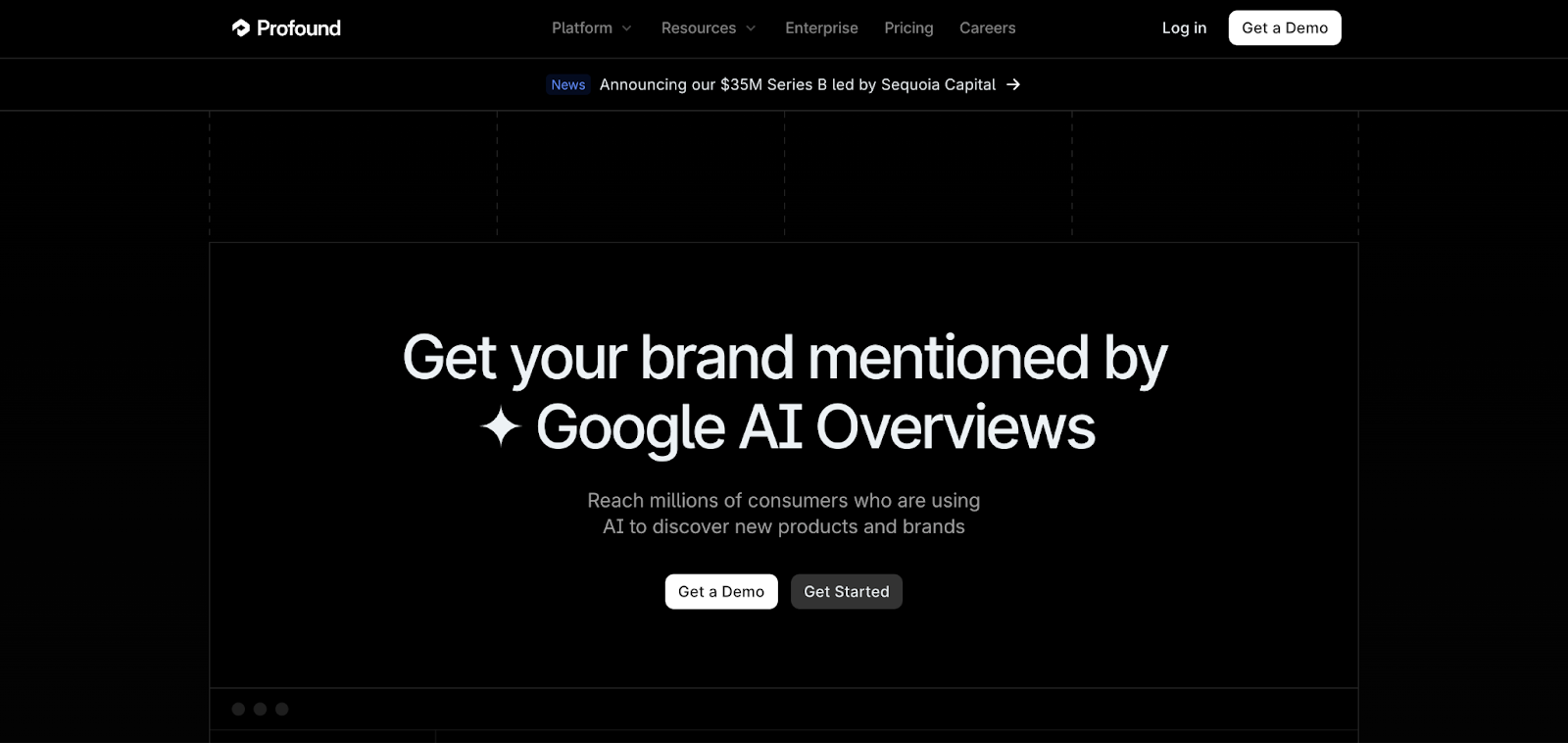
Overview
Profound is the enterprise heavyweight that connects AI mentions to business impact. It integrates with Google Analytics and your tech stack to show how ChatGPT citations translate into traffic and conversions. Features include multilingual monitoring, conversation-level insights, detailed sentiment analysis, and AI content generation.
Pricing
Premium-priced starting around $499/month for ~24,000 prompt queries. Higher tiers are custom-quoted for enterprise volume.
Pros and Cons
Pros: Deep analytics with granular data, enterprise integrations with existing tech stacks, and global and multilingual capabilities.
Cons: Enterprise-only focus with high costs, no broad SEO toolkit beyond GEO, requires ROI justification for newer GEO markets.
Semrush AI Optimization Toolkit
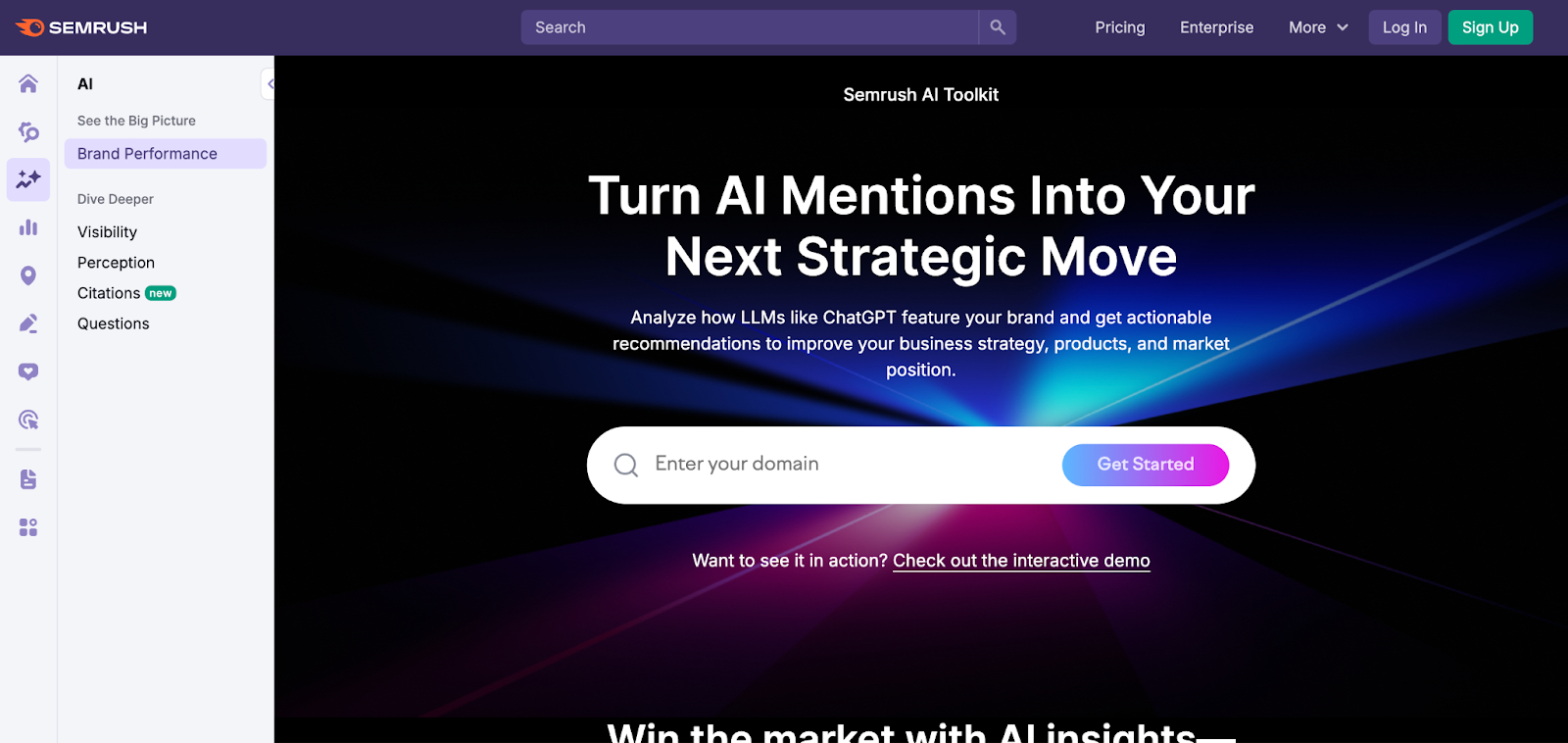
Overview
Semrush leveraged its massive SEO database to build GEO features that feel familiar to existing users. Their AI Mode in rank tracking shows if your pages appear in Google's AI search results, while competitive analysis reveals which queries trigger AI answers. Includes content audit with AI-readiness checks.
Pricing
It is a premium add-on, available for $99 per month per domain.
Pros and Cons
Pros: Comprehensive suite combining SEO and GEO, data-rich with reliable insights, continuous innovation and platform updates.
Cons: Google-centric coverage with limited other LLM insights, some AI data extrapolated from traditional metrics, and enterprise access requirements.
Scrunch AI
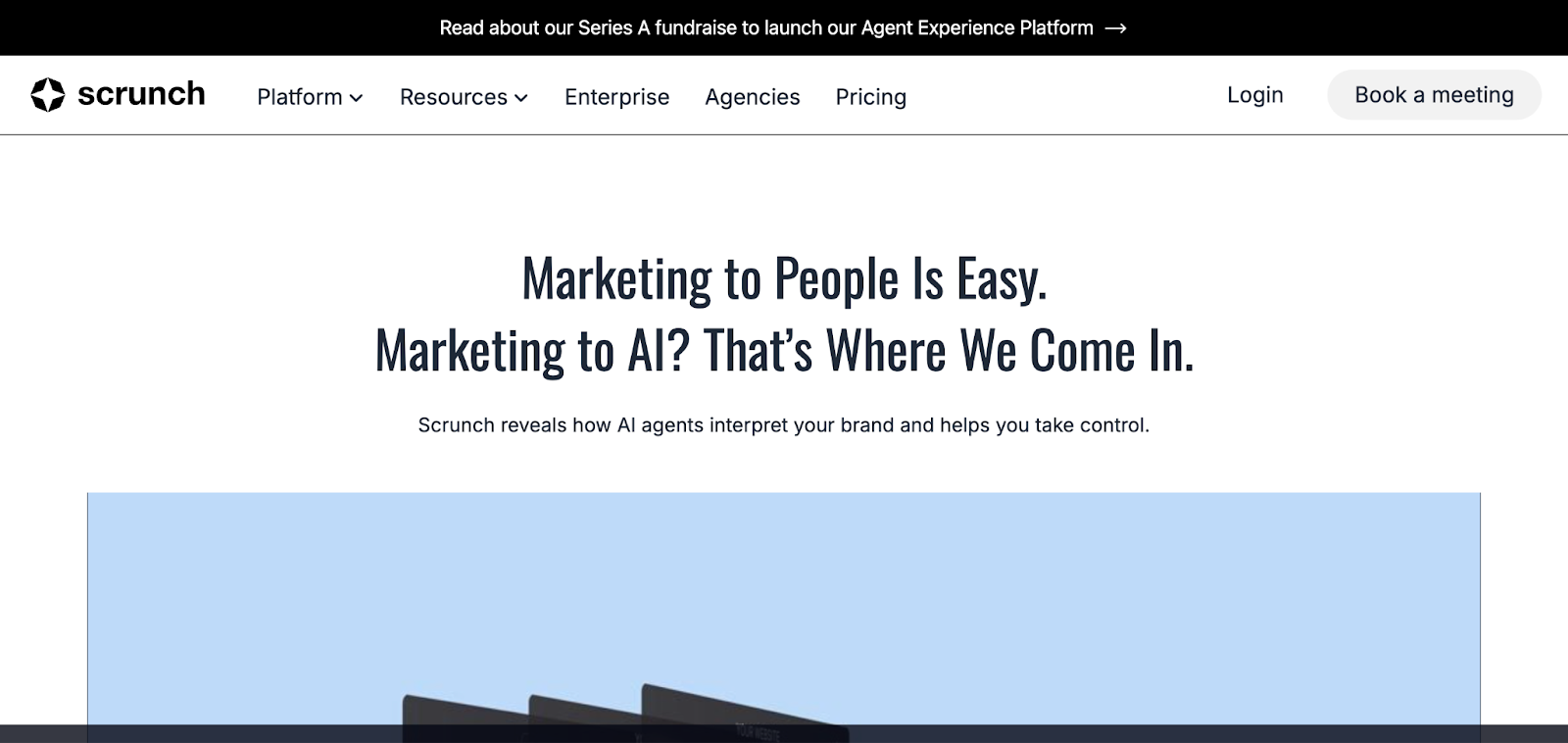
Overview
Scrunch takes a customer journey approach to GEO, mapping how your brand appears throughout multi-turn AI conversations. It has real-time monitoring, hallucination detection to flag AI misinformation about your brand, and a knowledge hub identifying content gaps where competitors appear but you don't.
Pricing
Premium pricing starting around $300/month for basic packages, scaling for enterprise features.
Pros and Cons
Pros: Extensive enterprise-grade insights, proactive hallucination detection for brand protection, robust support and integration capabilities.
Cons: Not SMB-friendly due to complexity and cost, relatively new platform with potential growing pains.
Peec AI

Overview
Peec tracks visibility scores across major AI platforms, identifies which sources get cited when your brand is mentioned, and provides competitive benchmarking in a clean, approachable interface.
Pricing
Basic plan starts around €89/month (~$100). Plus tier at €199, Business at €499.
Pros and Cons
Pros: Easy-to-use interface for non-technical users, affordable and accessible for SMBs, and focused insights without data overwhelm.
Cons: Basic feature set lacking advanced analytics, no content creation tools included, limited integrations and scaling options.
HubSpot AI Search Grader
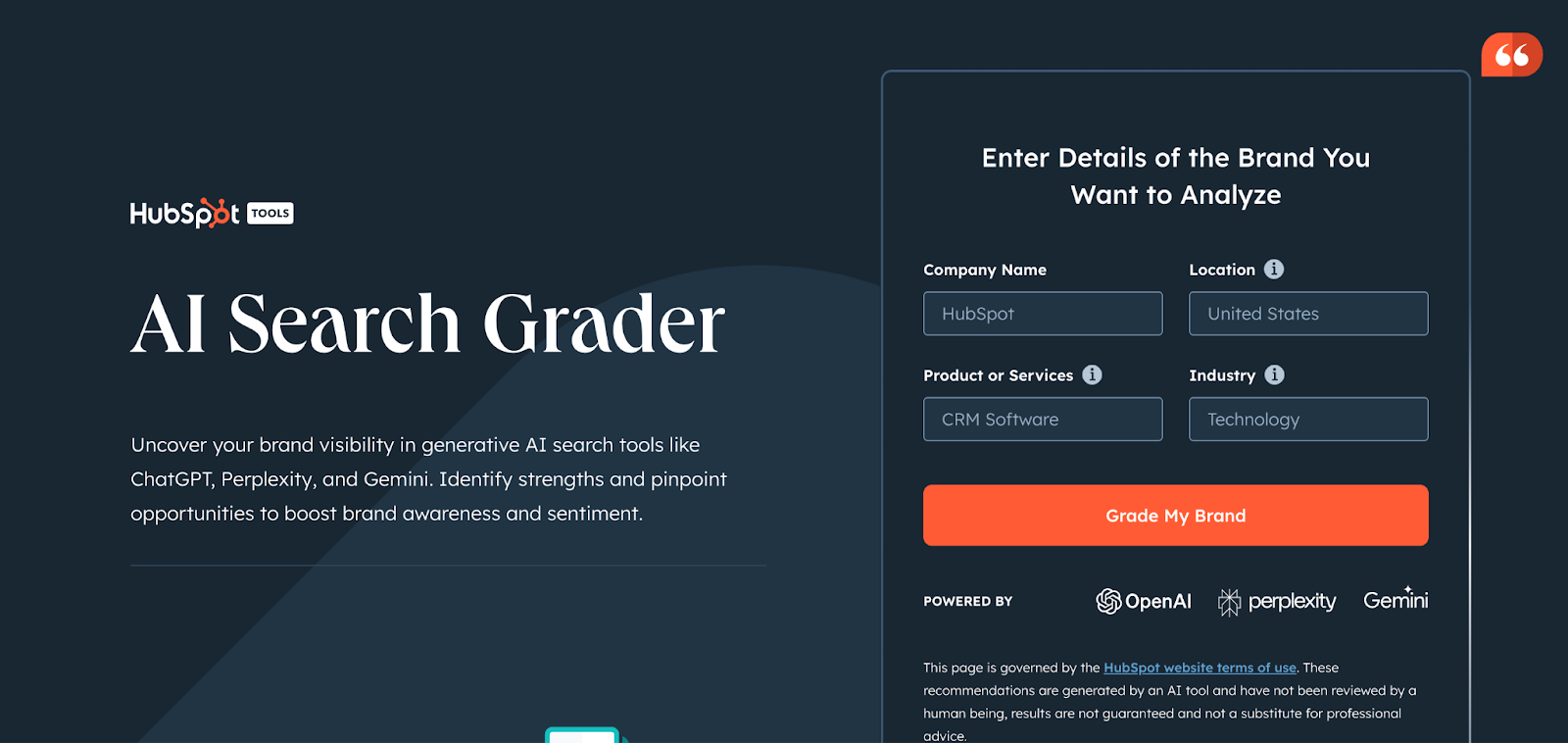
Overview
HubSpot's completely free entry point into GEO gives any marketer a quick health check of their AI visibility. It analyzes content positioning for ChatGPT, Perplexity, and Google's AI search, providing overall scores with actionable suggestions and competitive benchmarking.
Pricing
Fee to use via web form. No HubSpot subscription required for basic results, though integration with paid HubSpot products is available.
Pros and Cons
Pros: Cost-effective starter tool, actionable improvement suggestions, user-friendly with guided steps, and integrates proven SEO expertise.
Cons: Limited depth as an entry-level tool, covers only three AI sources, and manual process with no continuous tracking.
Athena HQ
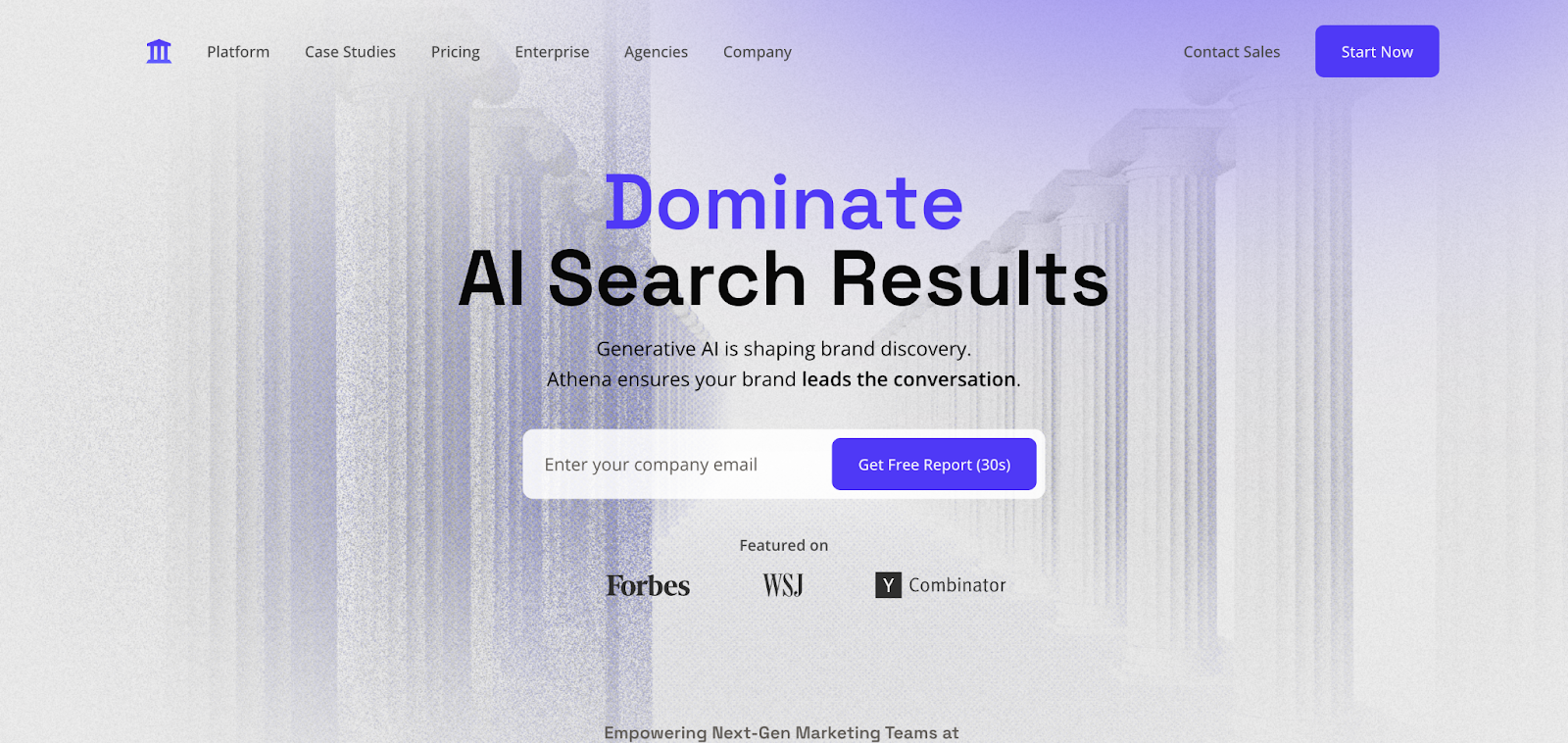
Overview
Athena bridges traditional SEO and GEO by evaluating content depth and semantic coverage. It scores how comprehensively you cover topics and provides specific recommendations like FAQ additions and schema markup. Integrates with Google Docs and CMS platforms.
Pricing
Starter at $295/month, Growth at $595/month, with the Enterprise tier at custom pricing.
Pros and Cons
Pros: In-depth content scoring with trackable metrics, integrated workflow from insight to implementation, and a hybrid SEO + GEO approach.
Cons: Limited customization for niche industries, not a full monitoring suite, and significant cost for content auditing functionality.
Ahrefs Brand Radar
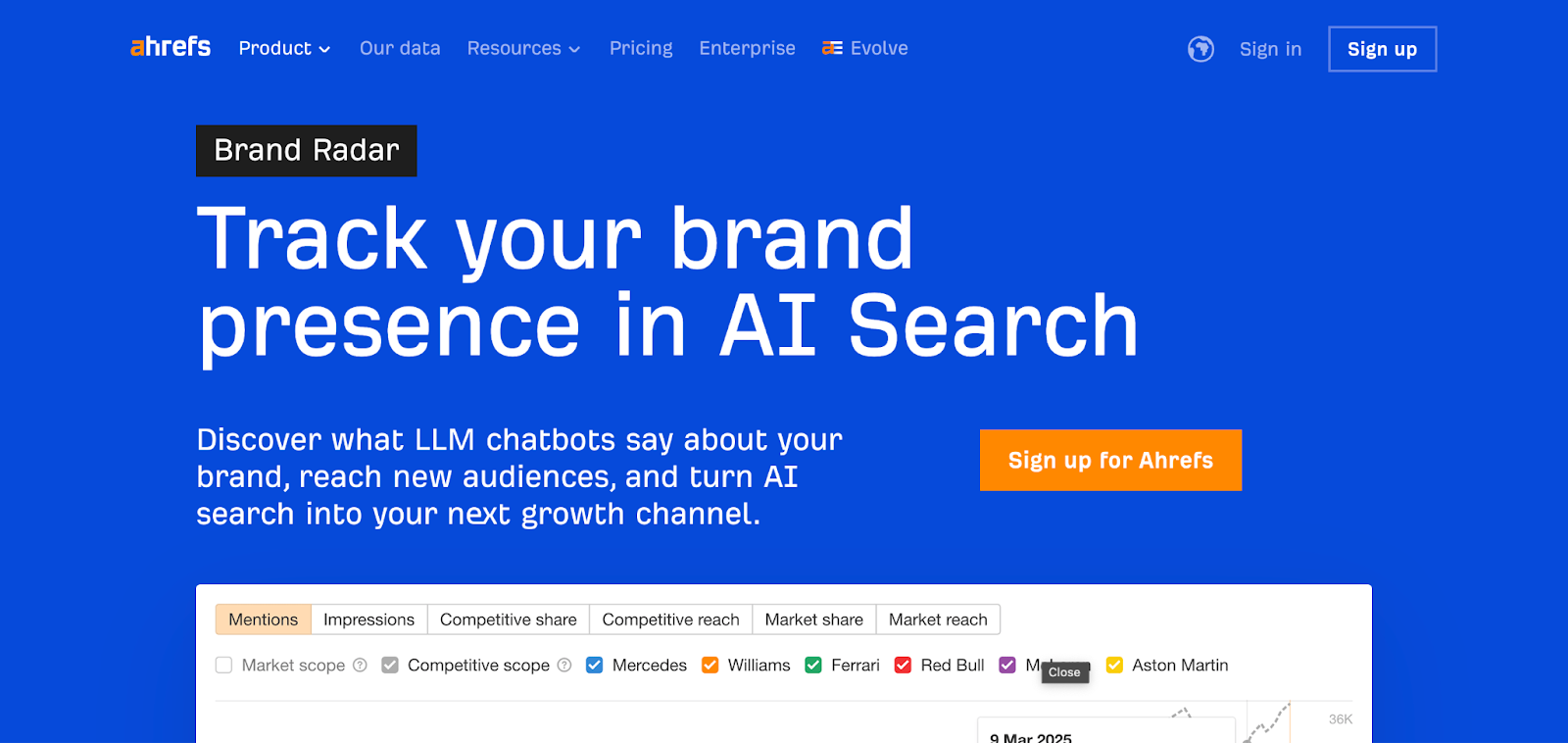
Overview and Features
Ahrefs added Brand Radar to their existing SEO suite, tracking brand mentions across ChatGPT, Google's AI, and Perplexity. It combines classic web mention tracking with AI visibility while making use of Ahrefs' strengths in backlink analysis and site authority.
Pricing
Bundled within existing Ahrefs plans starting at $129/month.
Pros and Cons
Pros: Holistic SEO + GEO approach within a familiar ecosystem, powerful core tools that indirectly boost AI credibility, and convenient integration.
Cons: Not a dedicated GEO solution with basic tracking, few AI-specific metrics beyond appearance counts, and early-stage accuracy issues.
KIVA
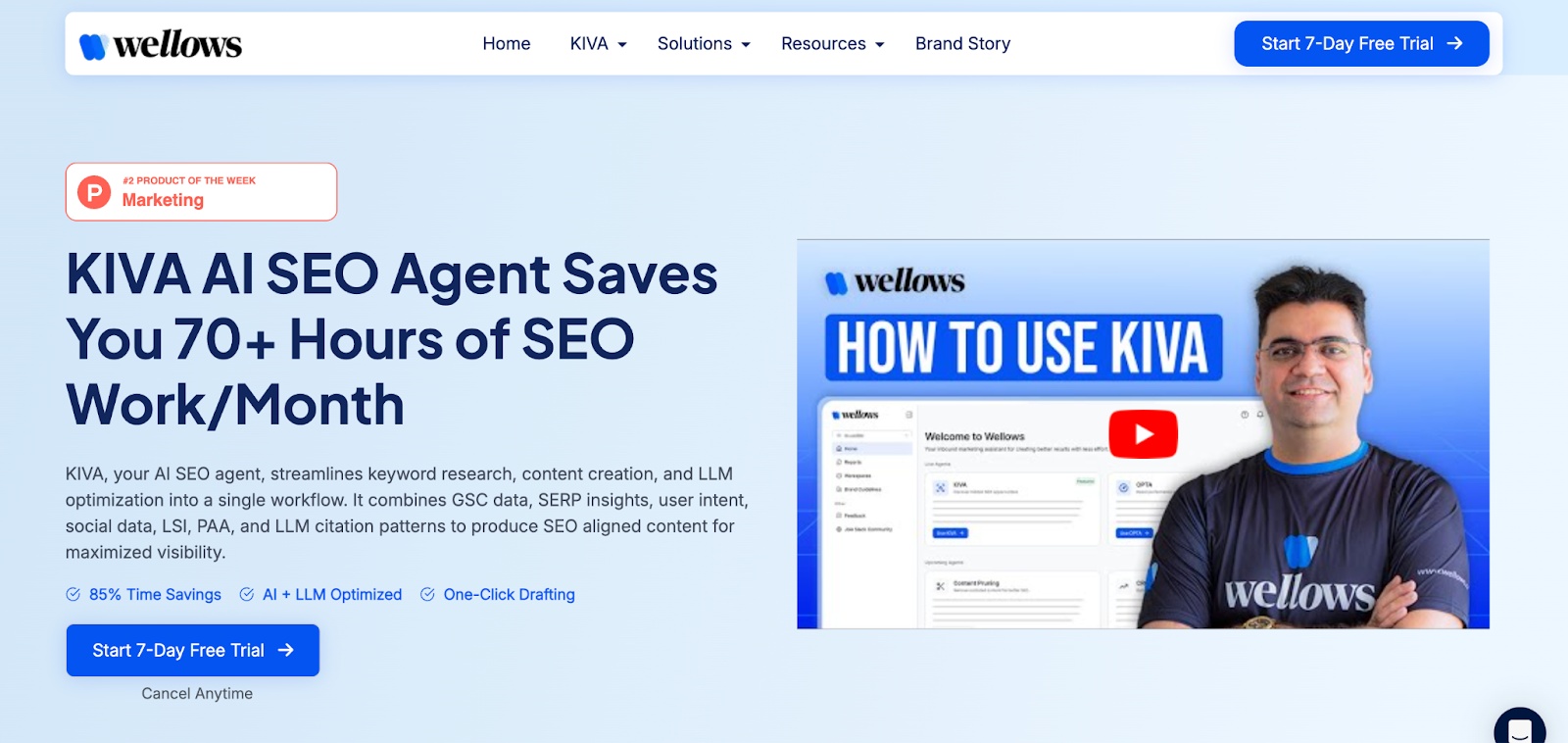
Overview
KIVA automates the content planning side of GEO by clustering keywords from Google Search Console and generating AI-optimized content outlines. It features query segmentation, AI-ready content structures, and integration across multiple AI platforms, including ChatGPT, Claude, and Perplexity.
Pricing
Starts around $39.99/month for the base plan with limited keyword clusters and content outlines. Higher tiers are available for agencies and larger sites.
Pros and Cons
Pros: Deep data integration with time-saving automation, future-proof content strategy for both SEO and GEO, and competitive entry pricing.
Cons: Not a monitoring tool for live AI results, requires existing search data for best results, and a learning curve for interpreting insights.
Prerender.io

Overview
Prerender.io solves a critical technical barrier by generating static HTML snapshots for AI crawlers while preserving interactive experiences for users. It has automatic crawler detection, headless rendering with caching, and developer-friendly integration across frameworks.
Pricing
Free plan for small sites, Essential plan around $90/month, and advanced plan at $290/month.
Pros and Cons
Pros: Ensures complete content indexability for AI, broad compatibility with proven reliability, and future-proofing for emerging AI crawlers.
Cons: Requires technical setup and developer involvement, no analytical insights provided, and ongoing cost for static infrastructure benefit.
Goodie AI

Overview
Goodie attempts to be the all-in-one GEO solution, combining monitoring across major AI platforms, optimization recommendations via their Hub, and AI-powered content creation. It has real-time analytics and attribution connecting AI visibility to business outcomes.
Pricing
Pricing not publicly available—requires direct contact for quotes.
Pros and Cons
Pros: Comprehensive all-in-one solution from tracking to execution, user-friendly interface with real-time updates, broad platform coverage, including emerging AI systems.
Cons: Newer platform with potential integration gaps, pricing transparency requires direct contact, may lack some enterprise integrations.
How to Select the Right GEO Tool for Your Business?
Choosing a GEO tool is about finding the perfect match for your team's reality. With dozens of platforms promising AI visibility nirvana, the wrong choice can drain budgets and frustrate teams.
Here are some factors to keep in mind while choosing a GEO tool:
1. Platform Coverage
Your tool must support the AI platforms where your audience is searching. ChatGPT now has over 400 million weekly users, while Google's AI Overviews appear on billions of searches monthly. Don't just check boxes—research where your specific audience discovers information. B2B buyers increasingly use platforms like Perplexity for research, while consumer-focused brands need Google AI coverage. Audit your current analytics to see which platforms drive referral traffic, then ensure your chosen tool monitors those exact sources.
2. Team Capabilities
Assess your team's technical depth. Analytics platforms should reduce manual effort and not require continuous assistance from IT departments. If you're a small marketing team without data analysts, enterprise-grade platforms with complex dashboards will collect digital dust. Look for tools offering guided workflows, clear action items, and onboarding support that matches your team's skill level.
3. Budget
Different analytics solutions have different cost structures, and it's important to understand them before making an investment—including subscriptions, growth, and hidden fees. Factor in implementation time, training costs, and scaling expenses. Beyond hardware costs, software licensing and updates are important factors. Free tools like HubSpot's AI Search Grader can provide starting insights while you budget for comprehensive solutions.
4. Integration with Existing Workflows
Your analytics platform should integrate with your existing systems and third-party data sources, and you must assess how easily you can move data to other systems if needed. High availability, platform security and compliance, and integrations are primary technical requirements. Ensure your chosen tool connects with Google Analytics, your CRM, content management system, and reporting dashboards.
5. Scalability and Future-Proofing
Cloud-based analytics platforms are designed to start small and grow with your business, with pay-as-you-go plans that give early-stage businesses a competitive edge. Consider whether existing tools will remain fit for the foreseeable future—if monitoring tools don't have a roadmap that fits your organization's future needs, plan and carry out a thorough replacement.
How Do I Optimize Content Using the Best GEO Tools in 2026?
It is important that your content shapes the conversation and not just tries to win a click. Here's how to use the best GEO tools to transform your content into AI citation magnets.
1. Start with Strategic Auditing
Use tools like HubSpot's AI Search Grader to evaluate how well your website content is optimized for AI-powered search engines. Examine your website across citation readiness, answer alignment, knowledge graph optimization, content authority, technical optimization, and competitive positioning.
2. Content Optimization Workflow
Write clear, concise summaries for complex topics and use numbered steps with clear transitions between each part—this makes it easier for AI systems to pull out individual steps when someone asks for specific instructions. Rewrite openings to answer the main question in 1-2 clear sentences, break up dense text with FAQs, definitions, and bullets.
3. AI-Powered Content Enhancement
Use AI tools for real-time trend analysis, enhance readability with tools like Grammarly to simplify language, and test AI appeal by running drafts through OpenAI's Playground or Claude to see how AI interprets them.
4. Track Performance
Use Google Analytics to monitor visitors from ChatGPT, Perplexity, and other tools that pass referrer data—look for domains like chat.openai.com and perplexity.ai, focusing on trends and patterns rather than single data points. Advanced tools like Otterly detect when AI platforms cite your content with links and provide automated link citation detection in AI-generated answers.
5. Structure for AI Comprehension
Add citations, quotations, and statistics to boost visibility—this approach aligns with users' need for credible, detailed answers, enhancing content authority and trustworthiness. Focus on clear headings, concise paragraphs, lists, and well-sourced information while incorporating credible sources, quotes, and statistics to enhance content richness and authority.
Conclusion
GEO is the new, different dimension of SEO, which is going to gain more prominence in the next few years. It’s crucial to ensure you don’t lag behind and use the right tools. You can either figure it all out by yourself, but that might involve a lot of time and investment. The more efficient way would be to partner with a GEO specialised agency that already has the tools and expertise to make it work for you!
To know more about our GEO services, you can book a call with our team!
Frequently Asked Questions (FAQs)
1. What are GEO tools, and why do I need them in 2026?
GEO tools are specialized platforms that optimize your content for AI-powered search engines like ChatGPT, Claude, and Perplexity, which are essential because audiences have rapidly migrated toward these platforms for conversational answers instead of traditional blue links.
2. Which GEO tool is best for tracking AI brand mentions?
The best tool depends on your budget, team size, and feature requirements, with options ranging from affordable SMB solutions like Otterly AI to enterprise platforms like Profound that offer comprehensive analytics and business impact tracking.
3. How do GEO tools differ from traditional SEO software?
GEO tools monitor citations and mentions within AI-generated responses across platforms like ChatGPT and Perplexity, while traditional SEO tools focus on keyword rankings and backlinks for search engine results pages.
4. What's the ROI of investing in GEO tools vs hiring an agency?
Hiring a specialized GEO agency provides immediate expertise, proven strategies, and faster results without the significant time investment required to learn and master the tools yourself.
5. Can small businesses afford professional GEO tools?
Yes, with options like HubSpot's AI Search Grader being completely free, allowing SMBs to test GEO strategies without enterprise-level investments.
6. Which GEO tools work with Google AI Overviews?
Most comprehensive GEO tools, including Otterly AI, Semrush AI Toolkit, Scrunch AI, HubSpot's AI Search Grader, and Ahrefs Brand Radar, all monitor Google's AI search results alongside other platforms.
7. How do I measure GEO tool effectiveness?
Track performance through citation detection in AI-generated answers, monitor referral traffic from AI platforms in Google Analytics, and measure improvements in AI visibility scores provided by your chosen tool.
8. Do I need technical skills to use GEO tools?
Most modern GEO tools are designed for marketers without technical backgrounds, though some tools require developer involvement for setup.
Related Posts
We'd Love to Work with You!
Join 70+ successful B2B SaaS companies on the path to achieving T2D3 with our SaaS marketing services.

.png)
.png)


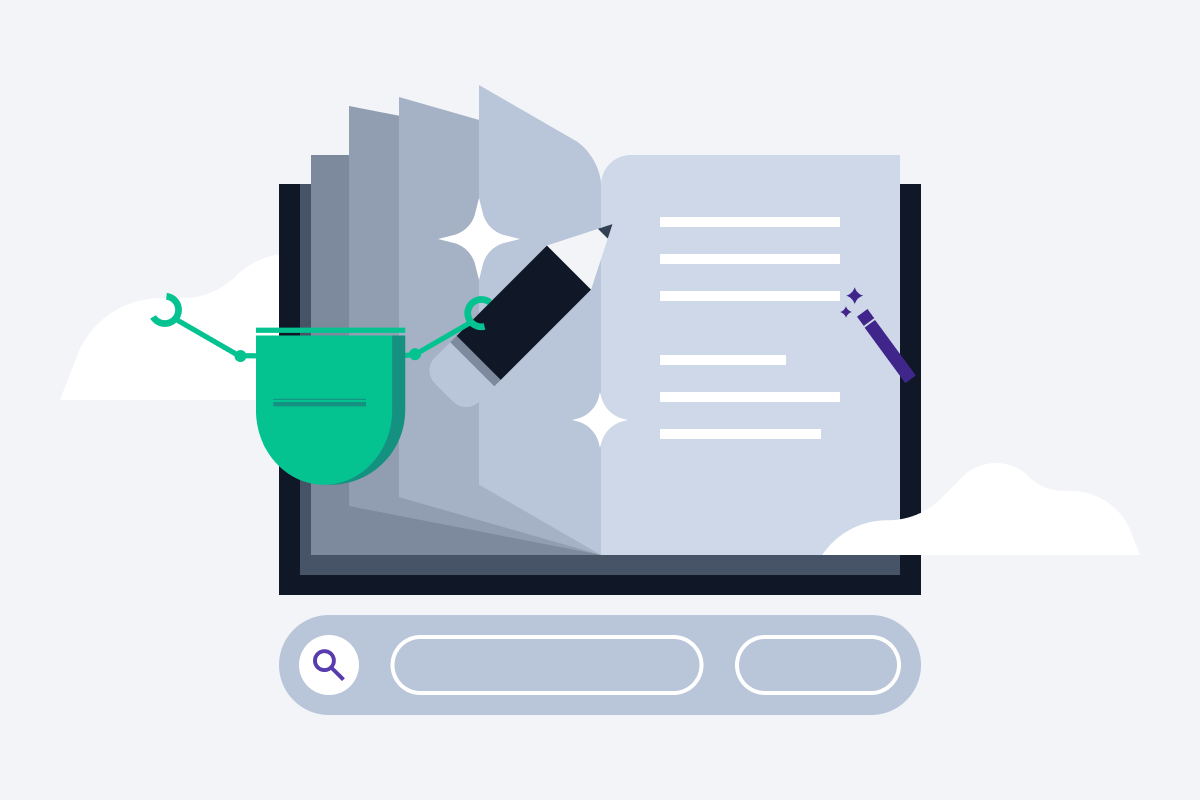


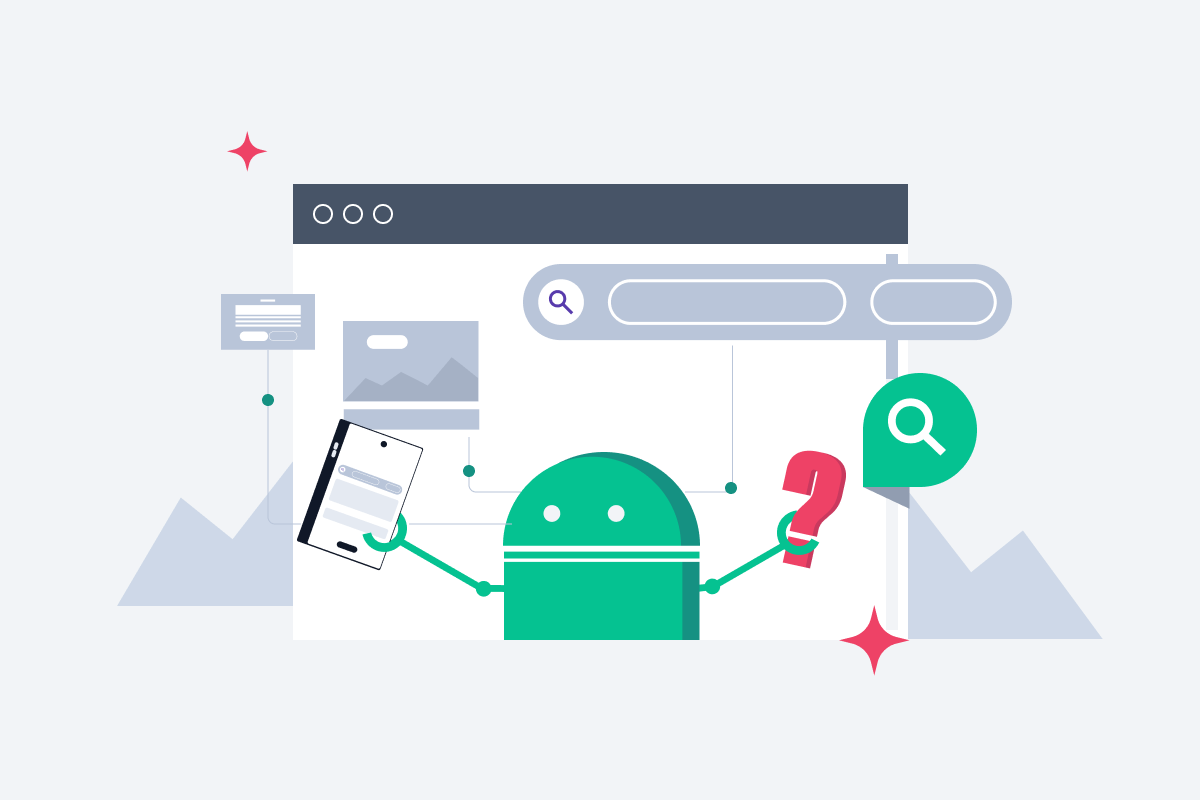
.png)
